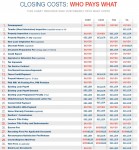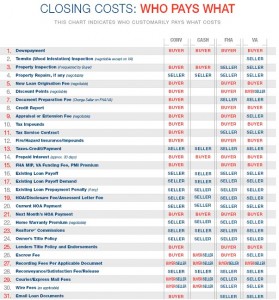Planning for 2023 As Mortgage Rates Rise

If you’ve been house-hunting in recent years, you’ve really been through it. Maybe you were waiting out the market, hoping the rocketing prices would start to flatten. Now, of course, they have — but between 2021 and 2022, mortgage rates have more than doubled, from less than 3 percent to more than 7 percent.
If you are renting and trying to save for a down-payment, the cost of your rental has likely increased as well.
Sellers who are sitting on low mortgage rates are not listing their homes for sale and supply shortages, cost of land, and cost of lending, along with higher labor and building costs have slowed down new construction.
All these factors contribute to a continued shortage of desirable inventory and home prices are staying propped up and not decreasing as one would expect.
Buyers need to adjust their expectations…Every buyer needs to do a gut check on how much house they can afford now. That might seem daunting, but higher mortgage rates don’t have to derail your dream of buying a home. In fact, historically, today’s rates are not considered particularly high.
Review your Budget: When you review your budget, keep in mind that newly built homes typically come with builder and manufacturer warranties and new energy-efficient appliances. Those advantages of a new home can lower your monthly housing costs. That’s especially true if you currently own an older home that needs repairs and has inefficient appliances.
Raise More Cash: Another option to buy a home with a higher rate is to spend more cash up-front. You can use cash to increase your down payment as a percentage of your loan amount, pay for builder upgrades in cash, or buy down your loan’s interest rate. You should work with your lender on the best use of your cash to achieve the lowest ongoing expenses to home ownership.
Evaluate Loan Options: A third strategy is to get a hybrid loan. This type of mortgage has a fixed rate that resets at the end of a specified period and is then fixed or adjustable for the remainder of the term. An example is a 7/1 hybrid adjustable-rate mortgage (ARM). This type of loan has a lower fixed rate for the first seven years. After that, the rate is adjusted annually (that’s the “1” part) for the remainder of the 30-year term.
Hybrid loans can be more affordable since the initial rate is usually lower. But there’s a risk: If you don’t refinance or sell your home before the rate resets, your payment could rise significantly for the rest of the term. If you can’t afford the higher payment, you could lose your home.
Rethink Your Needs and Wants: Buying a less costly home is another way to cope with higher rates. Less costly doesn’t have to mean a home you don’t like or that doesn’t fit your needs.
Reconsider Your Timing: Interest rates fluctuate, sometimes dramatically, over time. If you postpone buying a home, rates might be lower in the future, making the home you want more affordable. Or they could be higher, putting the home you want further out of reach. Experts are predicting the latter. The question for homebuyers is whether waiting and hoping makes sense. The answer is never as clear as a crystal ball.
Experts recently polled project average 30-year mortgage rates to fall between 5-9.31%in 2023. No one is expecting a move downward in the next 5 years. Several factors could lead to unexpected rate movements in the coming year.
Owning a home has certain benefits that renting doesn’t offer. Renting means no control over future [home price or interest rate] increases, no accumulation of equity through price appreciation, no tax deduction for property taxes and mortgage interest if you itemize your deductions, and no benefit for improvements you make to the property. Waiting to buy while you hope rates move lower means forgoing those benefits.
The lost opportunity of not buying due to a fear of higher rates far outweighs the benefits of homeownership. It’s best to take advantage of what the rates are today and build equity sooner rather than later.














 Kim N. Bregman
Kim N. Bregman